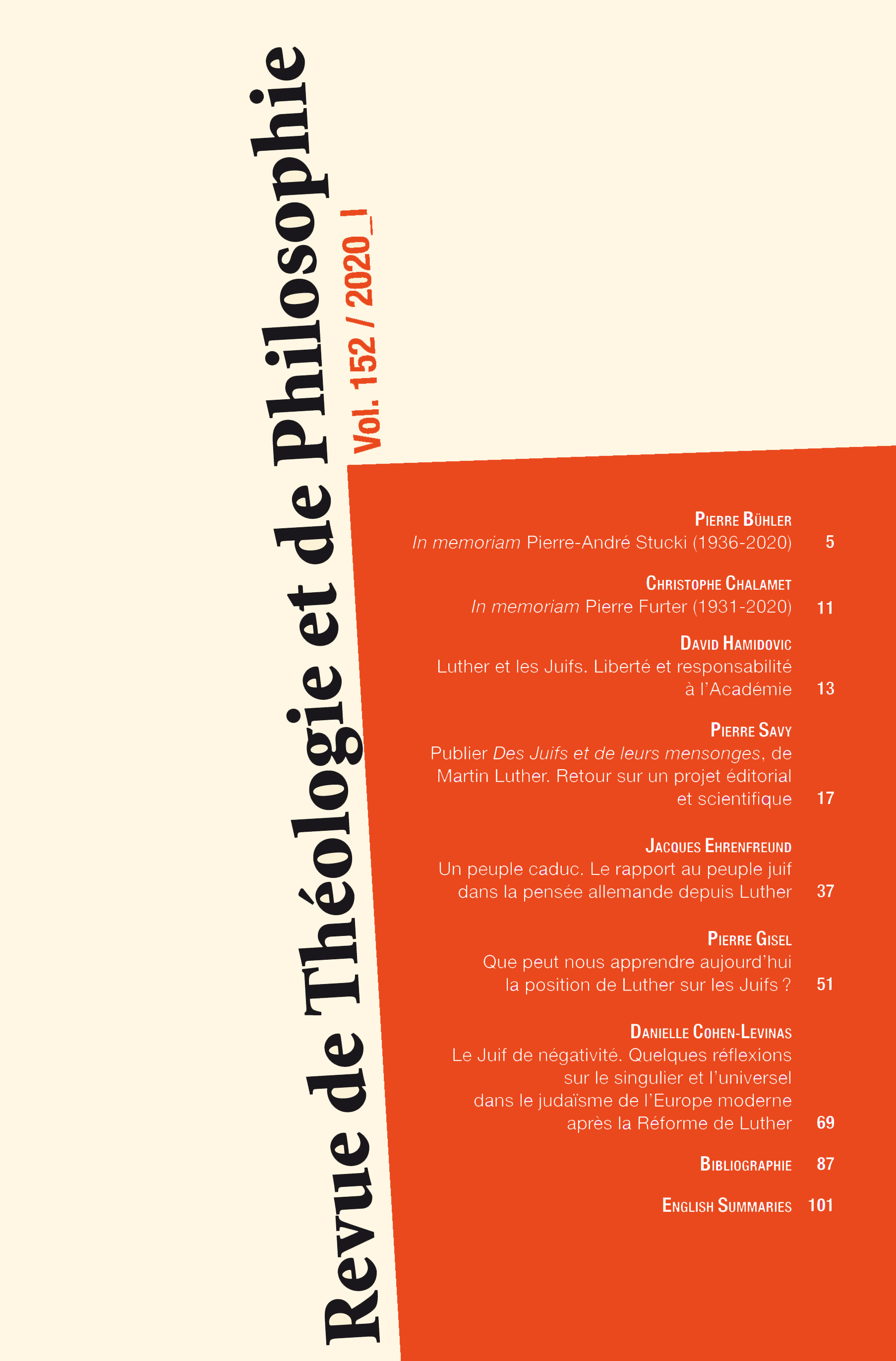The Jew of negativity
Remarks on the singular and the universal in Judaism in modern Europe after Luther’s Reformation
Abstract
The Jewish contribution to modernity in Europe is not unscathed by Luther’s anti-Jewish legacy. To say that Nazi leaders owed Luther nothing, that they had not read, is insufficient. With his pamphlet of 1543, Luther transforms state hatred of the Jews into a state hatred that contributes to a negativity of the Jews, who are incapable of the spiritual elevation proposed by Luther’s Reformation. At the same time, the break-up of Christianity within Europe will have a paradoxical effect on the future of Judaism in Europe, allowing the emergence of an area of inalienable freedom of religious conscience which will be the source of an unexpected modernity, renouncing neither the universal nor the singular. In spite of these advances, the reference to Judaism nevertheless remains de facto negative, even unconsciously, because it was by denying Judaism that Christianity gained recognition as such.
How to Cite
More Citation Formats
Issue
